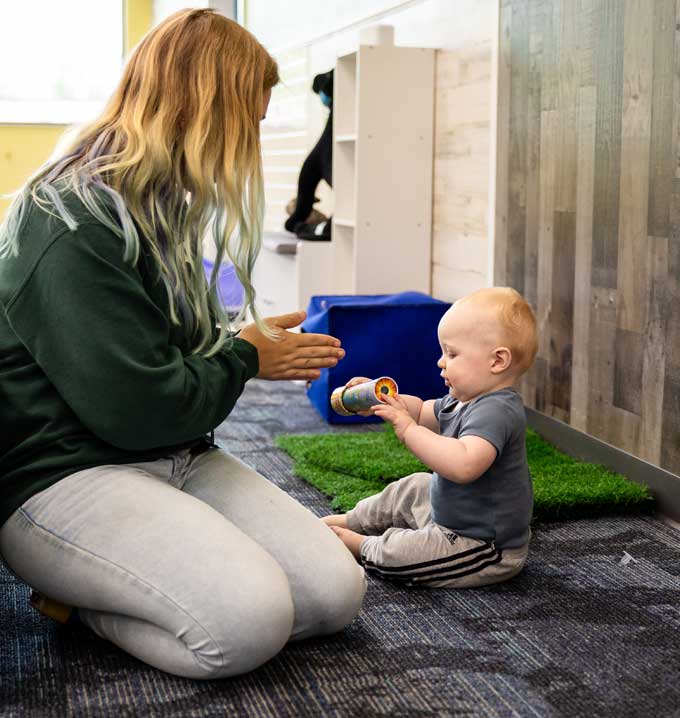How Long Does ABA Therapy Take? – Lighthouse Autism Center
We take a look at the recommended amount of time children should spend in ABA therapy and the timeline for how long autism therapy can continue.

My Child & Autism: How Long is Autism Therapy?
One of the most common questions parents ask when approaching the idea of ABA therapy for kids is, “How long will my child need therapy?” Unfortunately, there is no easy answer or a single solution for an autistic child. Each child is unique in their skills and goals. This means that each child’s therapy plan and programs and the length of that plan will vary.
Who Determines How Much Therapy My Child Will Need?
When you’re considering ABA therapy for your child, one of the first steps is meeting with a Board Certified Behavior Analyst (BCBA) for a thorough clinical assessment. Your BCBA will get to know your child a bit and work with you to understand your goals and concerns. Based on this initial assessment, they will come to you with personalized recommendations for your child’s therapy schedule and program, including how long therapy should last for your child. These recommendations will also evolve as your child grows and progresses.
At Lighthouse Autism Center, the goal is to eventually transition children back to a classroom setting where some form of support continues. This may mean having a classroom aide work with them or setting up an IEP with the school. Other children may not need any support at school at all.
Autism Spectrum Therapies at Lighthouse
ABA therapy programs at Lighthouse Autism Center are built to the unique needs of every child. The clinical team recommends these programs based on the initial assessment of each child’s unique needs. They will provide a personalized ABA therapy treatment and behavior management plan that will set your child up for a successful future.
The BCBA you are working with will recommend an appropriate number of therapy hours for your child based on their assessment, which can range from shorter, scheduled sessions to a more comprehensive support plan.
When is Full-time ABA Therapy for Autism Recommended?
A full-time program allows for a more comprehensive approach to therapy. Enrolling your child in a full-time program gives them the maximum exposure to effective ABA therapy techniques and the amount of therapy they can do. This is often recommended for young children with a focus on early intervention.
If a child is enrolled in a full-time program at a young age, especially during their formative years, this supportive therapy can help them learn and develop critical life skills during the most neuroplastic period of their life. Early intervention focuses on addressing core developmental challenges before they become more deeply ingrained, targeting essential skills like communication, social interaction, and adaptive behaviors when the brain is most responsive to learning and behavioral interventions. This focused approach can help autistic children explore their interests, engage more confidently with the world around them, and work towards greater independence. It’s important to remember that ABA therapy involves breaking large goals into very small, measurable, and attainable goals for your child. These small goals will build on each other until they culminate in achieving a larger goal.
Center-based ABA Therapy for Autism
Center-based ABA therapy is when the therapy sessions occur inside an autism treatment center (as opposed to in another setting, such as the home or community). Center-based therapy gives autistic children a structured, purpose-driven environment to learn and grow. These centers include dedicated spaces that support skills development through engaging, hands-on experiences and are even equipped with specialized tools and resources that may not be available at home, such as sensory rooms and educational toys. Center-based learning also offers the benefits of consistent routines, opportunities for peer interaction, and access to a range of support from trained professionals.
Ultimately, there is no “cookie-cutter” approach, and each child’s therapy journey must be tailored to their individual needs to be effective. At Lighthouse, we are dedicated to giving your child a unique and personalized experience that will help them unlock their unlimited potential.
Together, we can unlock your child’s potential
Related News

01/15/2026
10 Simple Self-Care Habits for Autism Caregivers
Caring for a child with autism is rewarding, but can also be demanding in ways that aren’t always visible. Between daily routines, therapy schedules, advocacy, and emotional labor, many caregivers find themselves running on empty, even as they continue to show up for their child every day. Earlier this year, we explored this reality in our blog post, The Power of Pause: Why Caregiver Self-Care […]

01/05/2026
The Power of Pause: Why Caregiver Self-Care Matters
As a new year begins, many families naturally reflect on what they hope the months ahead will bring—more peace, more balance, more support. At Lighthouse Autism Center, we’ll be taking a deeper look at the importance of self-care throughout the month of January, offering resources and encouragement to help caregivers start the year feeling supported and grounded. But […]

11/18/2025
Tips for Picky Eaters and Introducing New Foods
Autistic children are often labeled as picky eaters, but the truth is that they face a unique set of challenges that can make mealtimes extremely stressful. Discover helpful tips on introducing new foods into your child’s diet to make mealtimes more nutritional and enjoyable for everyone at the table. Autism and Food: Tips for Introducing […]


